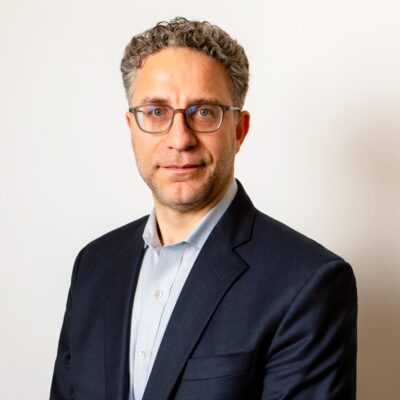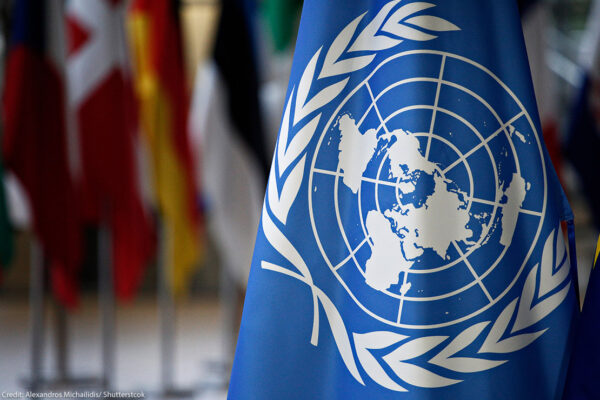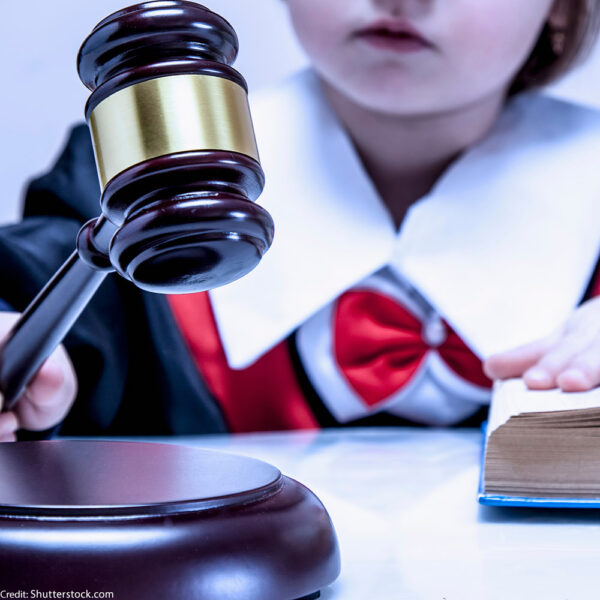United Nations Experts Urge Officials to Confront Institutional Racism After First U.S. Fact-Finding Visit Since Murder of George Floyd
NEW YORK — At the end of a 12-day-long fact-finding visit to the United States, two United Nations experts on racial justice concluded that authorities must adopt a human rights-centered approach to addressing systemic racism against Black people and people of African descent, and redefine the mission and scope of the police including radically change the way law enforcement operate and are held accountable when abuses take place.
The experts visited Washington D.C., Atlanta, Los Angeles, Chicago, Minneapolis, and New York City between April 24 and May 5, 2023. They met with local and national government officials, law enforcement representatives, civil society organizations, grassroots groups and academics, as well as victims of police brutality and their families.
The experts examined the drivers of systemic racism in policing practices, gathered data, and offered preliminary recommendations aimed at combating human rights violations by the criminal legal system against Africans and people of African descent. They noted that “slavery has left a deep and long-lasting entrenched legacy on the country, which can be perceived through generational trauma. Racial discrimination permeates all contacts with law enforcement, from the first contact – at times already in school – by means of racial profiling, arrest, detention, sentencing and disenfranchisement in some States. In each of those aspects, available data points to a clear disproportional impact upon people of African descent.”
“Throughout the visit, we heard the harrowing pain of victims and their families and their resounding calls for accountability and support. We support those calls for accountability unreservedly and we welcome measures taken so far,” says Juan Mendez, one of the members of the U.N.’s Expert Mechanism to Advance Racial Justice and Equality in the context of Law Enforcement (EMLER) and former Special Rapporteur on torture.
“In juvenile detention, the practice of solitary confinement has to end completely and fully for any child … that is the prohibition on the Convention on the Rights of the Child,” Mendez said.
The experts heard testimonials from approximately 120 victims and their families across five cities. Stories of victims who have been subjected to youth solitary confinement (some as young as 8 years old), electroshock to force confessions, sexual assault, forced labor, and experiences with outward discriminatory and racist law enforcement with outward displays of white supremacy (including the prevalent tattoo of a Black baby with a noose around its neck) all made a lasting impression on the experts. In one particularly egregious case, law enforcement officials entered a home and held a 4-year-old Black immigrant boy with Down syndrome at gunpoint along with his family, after they had already killed his teenage brother at a nearby gas station.
“In any other community, with any other complexion and with any other financial status, my brother’s story would not be a thing,” said Akeem Browder, whose brother Kalief died by suicide after spending three years in the Rikers Island jail complex for allegedly stealing a backpack, nearly two years of which were spent in solitary confinement. “But we live in the poorest Congressional district in America. We are done asking why. We need to know that changes are coming now.”
“The experts’ visit is a tribute to the work we’ve been doing as a coalition in the past three years,” said Salimah Hankins, director of the U.N. Anti-Racism Coalition (UNARC - secretariat hosted at the International Service for Human Rights) whose organization coordinated all of the civil society meeting in five cities. “We pushed hard to ensure an effective follow-up to the Human Rights Council Resolution 47/21 that created EMLER. It is clear, after hearing the testimonies of over 120 victims of discriminatory policing, that the criminal legal system in the United States cannot be incrementally reformed because it is operating as it was designed to. It was created from slave patrols expressly for the subjugation of Black bodies in order to ensure the comfort and supremacy of white people and their property. It continues to serve this function today. We will hold the U.S. federal, State and local governments accountable to listening to the solutions proposed by Africans and people of African descent and to reckoning with the pain and unimaginable damage these governments continue to cause,” she concluded.
The U.N. experts have called on the United States to address as an imperative priority “the impact of the circle of poverty on people of African descent, including operating an urgent shift from a criminal justice response to a human rights-centered response to poverty, homelessness, substance abuse, and mental illness.”
“This historic visit from the U.N. should serve as a stark reminder of the urgent need to dismantle systemic racism and honor the legacy of George Floyd and the hundreds of other Black people killed by police every year,” said Jamil Dakwar, director of the American Civil Liberties Union’s Human Rights Program. “We welcome the preliminary findings and eagerly anticipate the United States being held to account when the full report is presented to the Human Rights Council in September. The Biden administration has a golden opportunity to take bold actions and invest in alternatives to policing that help us achieve safety for everyone and heal our communities. Our government must walk the walk and double down on its commitment to respecting and protecting human rights at home and addressing the root-causes of present-day structural racism and racial discrimination against Black people and communities.”
About police brutality:
- Black people are killed by police at over twice the rate of white people in the U.S.
- Over 1,000 people in the U.S. are killed by police annually, or more than 8,400 since 2015.
About U.N.’s Expert Mechanism to Advance Racial Justice and Equality in the context of Law Enforcement (EMLER):
The Expert Mechanism was established in 2021 by the U.N. Human Rights Council as a direct response to the global outcry sparked by the murder of George Floyd, in May 2020. In September 2022, it presented its first report to the Human Rights Council, which stressed that law enforcement officials in many countries continued to kill African persons and people of African descent in near total impunity.
EMLER experts also recently weighed in on two such lethal incidents in the U.S., expressing “grave concern” over the deaths of Keenan Anderson, killed by Los Angeles police, and Tyre Nichols, killed by police in Memphis, Tennessee.
The U.N. Anti-Racism Coalition and its members, including Mothers Against Police Brutality, the American Civil Liberties Union (ACLU), and the International Service for Human Rights (ISHR) have been coordinating meetings between civil society groups and the U.N. experts for the visit and can facilitate contact and interviews with grassroots activists and victims seeking to engage with the Expert Mechanism.
About the UN Anti-Racism Coalition:
The U.N. Anti-Racism Coalition is a civil society network that emerged in the wake of the murder of George Floyd, when numerous organizations pushed to secure a historic urgent debate in June 2020 at the U.N. Human Rights Council. Shortly after that debate, the Council adopted Resolution 43/1, which mandated the U.N. High Commissioner for Human Rights to prepare a report on systemic racism, human rights violations against Africans and people of African descent by law enforcement globally including in the United States, and governments' responses to anti-racism protests. The Coalition formed organically to coordinate and develop a strategy to ensure an effective follow-up to the HRC Resolution 43/1 which led to the adoption of HRC Resolution 47/21 that created EMLER.
Stay informed
Sign up to be the first to hear about how to take action.
By completing this form, I agree to receive occasional emails per the terms of the ACLU's privacy statement.
By completing this form, I agree to receive occasional emails per the terms of the ACLU's privacy statement.



